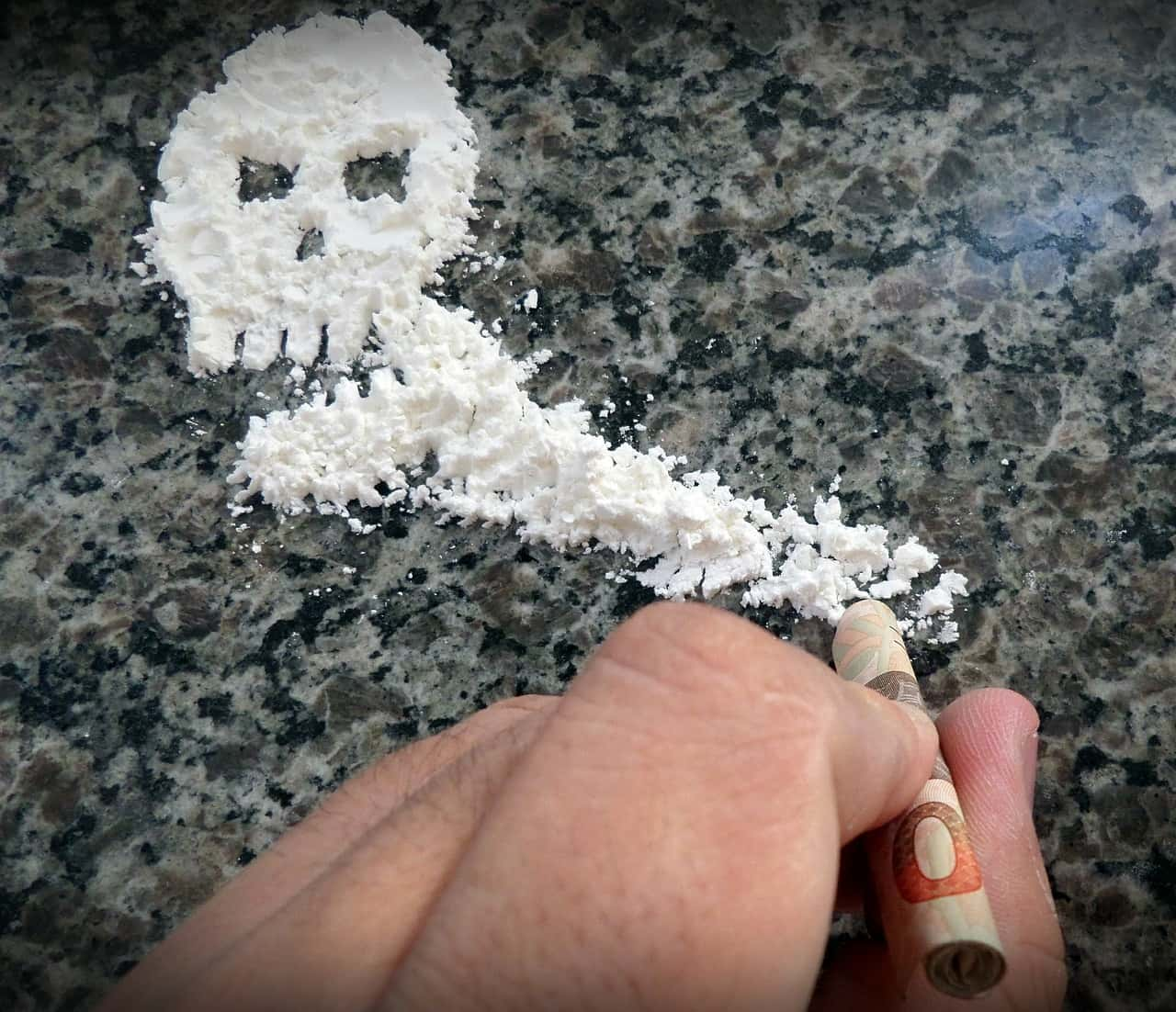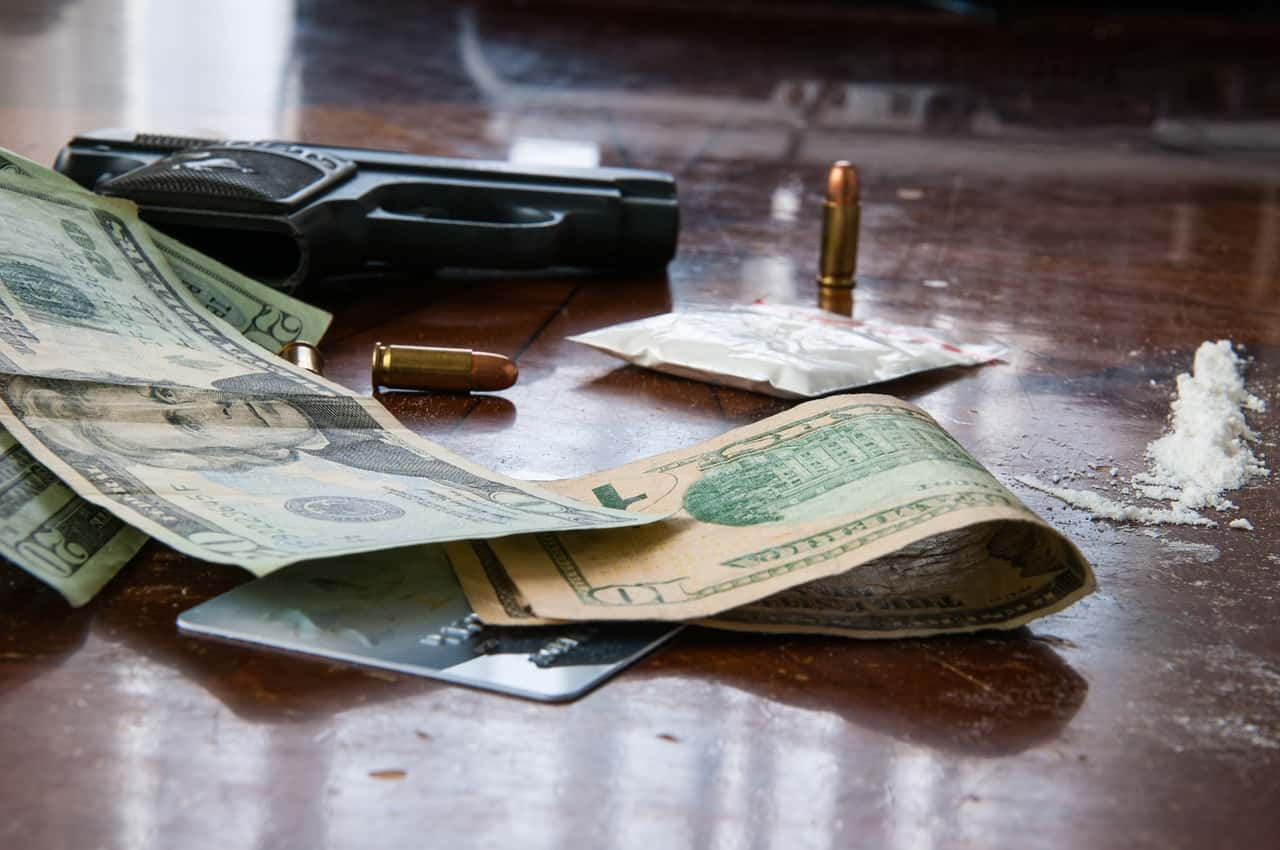Narco Nation: Possession and trade of illicit drugs can result in 10-year conviction and $10M in penalty

America has been plagued with the drug problem for decades now, and the opioid endemic, in particular, still continuing to rage on. Despite there being awareness of the harms caused by drug use and drug possession, every year tens of thousands of people succumb to drug-related deaths. MEA WorldWide's (MEAWW) Narco Nation campaign will examine different aspects of the issue including its illicit trade and legal protocol.
The use of illegal drugs has been pervasive in American society, but the 'problem' has risen to a level of urgency in the past four decades or so. In 1971, President Richard Nixon declared drugs, especially heroin, as America's number one public enemy. The 1980s fostered the emergence of cocaine, particularly crack cocaine, which quickly became an issue of concern. Following President George Bush's televised national drug control strategy address in 1989, 64 percent of respondents to a poll by the New York Times and CBS said drugs are a critical problem in America. Drug cases constitute the second-highest category of criminal cases filed by US attorneys, although federal drug cases have declined over the past decade.
Opioids are illegal drugs that the government has included in its laws on controlled substances. Opioid abuse and addiction have seen a staggering uptick over the past two or three years, but it has been a rampant problem for a while now. According to reports, there are over 22 million individuals in the US who have a substance abuse problem, including alcohol. At least 4.5 million individuals, at any given time, have a disorder brought about by excessive use of illicit or prescriptive drugs. The increase and decrease of public preoccupation with drugs correspond in perplexing ways with shifts in pattern and levels of drug use. The public health consequences of substance abuse are also alarming. 2017 mortality reports show that over 70,000 deaths were caused by drug overdose and a majority of them due to opioids. It represented a doubling in drug-related deaths in a span of a decade.

Many people believe that 'drug trafficking' is synonymous with 'drug dealing' when in reality it goes much deeper and broader than it is made out to be. In the US, the drug policies incorporate federal laws that regulate trade, distribution and possession of illicit intoxicating substances solely intended for recreational use, besides alcohol and tobacco, and also with the exception of medical use. The federal authority to control these substances is primarily in the hands of the Attorney General of the US. The federal controlled substances laws in all states and territories in the US are enforced by federal agencies and predominantly by the US Drug Enforcement Administration (DEA). Federal authorities are usually summoned in drug-trafficking cases when the trafficking activity crosses state lines or involves more than one state.
But most drug crimes that the law enforcement is familiar with are tackled at the state level, but in many cases, federal agencies also assist them with drug-related arrests and suspects are referred for state prosecution. While state laws on drug-trafficking have significant differences, all states have laws that punish illicit drug activity. Most state or local arrests are subject to possession rather than sale or manufacture, and on the contrary, federal arrests are usually on the grounds of trafficking offenses rather than possession. Over the last 25 years, the majority of the DEA's arrests have been for offenses relates to cocaine.
Grounds of drug-trafficking charges

Intent and possession: To be convicted of a drug-trafficking crime, the prosecutor must prove that you possessed a certain amount of illegal drugs intentionally. Knowingly possessing an illegal drug is more than enough to get a conviction, but that doesn't mean the prosecutor has to prove your state of mind or men's rea at the time of possession.
Weight and measurement: You can be penalized for drug-trafficking based on the laws, depending upon the amount of drugs you have in your possession. The specific amount of drugs depends on the type of drug. For instance, a state law can determine that possessing 25 pounds or more of marijuana or 300 pounds or more of marijuana plants as a limit in marijuana trafficking. Anytime you cross that limit of possession, you can be convicted of drug trafficking.
Trade: Drug trafficking charges are not subject to whether you made the drugs, sold or tried to sell them or even transported them. The main claim in a trafficking charge is whether you had the illegal drug in your possession and if the amount exceeds the limit prescribed by the law.
Penalties

The severity of penalties associated with drug-trafficking vary by state, but all states impose stringent penalties, nevertheless.
Prison: Many drug-trafficking convictions generally result in prison sentences that last well over a year, even for first-time offenders. A conviction for drug trafficking can result in a prison sentence of 10 years or more, although some states may have stricter penalties than others. Seldom, drug trafficking convictions also result in life sentences.
Fines: Drug-trafficking convictions can be fined a hefty sum of money. State trafficking convictions can be fined between $25,000 and $100,000 or even more. Federal drug-trafficking conviction penalties can exceed $10M
Probation: Probation sentences are possible as a part of a plea bargain in those trafficking cases where the accused agrees to plead guilty to a less serious charge. People serving a probation sentence have to meet specific conditions as ordered by the court like being monitored by a probation officer, submitting to drug tests, not leaving the state without probation officer's permission, and not committing any other offenses. Probation sentences vary from at least 12 months to up to 3 years.
Mandatory minimum sentences: Drug-trafficking laws often enforce mandatory minimum sentences, where a person convicted of the crime has to serve a specified amount of time and cannot be released on parole until that time frame has been met. If a person is sentenced to 10 years in prison, and your state has a three-year mandatory minimum, that means they cannot be released on parole unless they have finished serving three years in prison.










